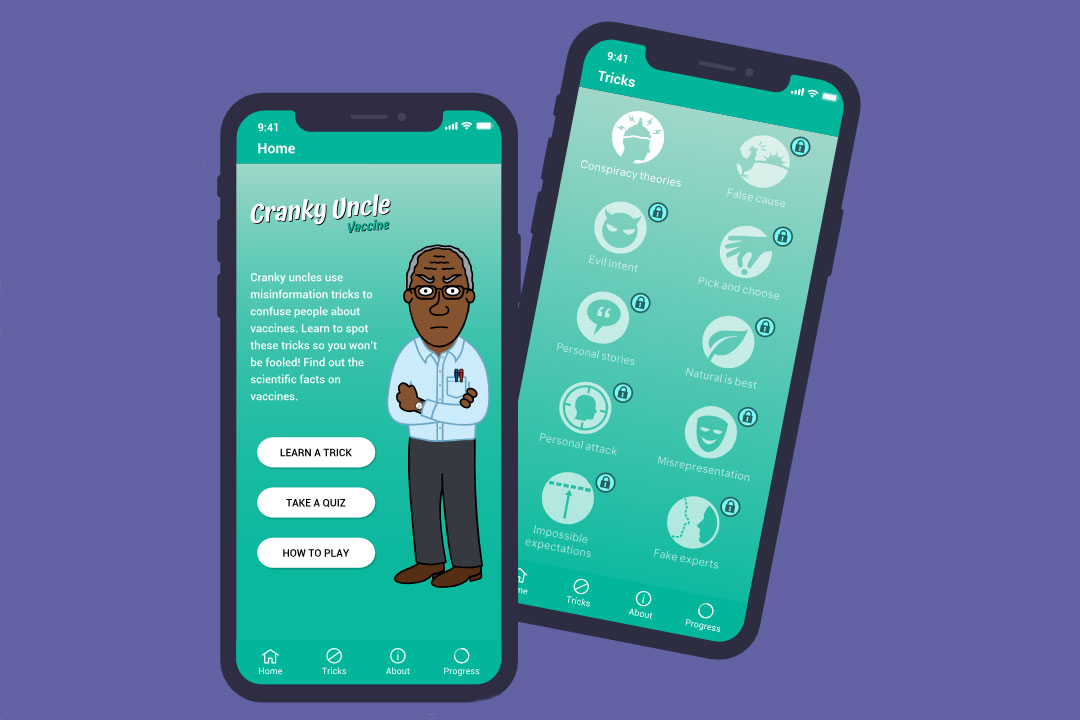Behavioural nudges could cut vaccine hesitancy in health workers
Reducing any friction in getting a vaccine and adding social ‘nudges’ could mean fewer health workers skip vaccines for flu or COVID-19.
- 28 August 2025
- 3 min read
- by Priya Joi

Health systems often rely on health workers to promote vaccination to the community, yet the COVID-19 pandemic shone a light on the challenge of hesitancy among health workers themselves.
This week in Nature, Francis Drobniewski, at the Department of Infectious Diseases, Faculty of Medicine, Imperial College London, London, and colleagues published a survey of over 2,000 health workers in Lithuania, Portugal, Poland, Germany and Brazil to understand the determinants of vaccine hesitancy in this group.
There are often numerous reasons why people may refuse a vaccine, related to their experience of health systems and immunisation programmes, how much they trust the entities putting out public health messaging on vaccines, and their perceptions or understanding of infectious diseases.
The survey was conducted from December 2022 to October 2023 within the framework of the European Cohorts of Patients and Schools to Advance Response to Epidemics project.
Here are their top five findings.
1. Most health workers were supportive of routine childhood vaccines
Around 80% of respondents were supportive of the usefulness and safety of childhood vaccines (although only 5% believed they were unsafe – the rest were either unsure about safety or not sure whether all the vaccines were necessary).
Yet only 56% were “confident about the long-term safety of the COVID-19 vaccine offered” to them, with 19% indicating lack of confidence and 23% uncertain about long-term safety.
Intriguingly, this was far lower than the actual numbers of health workers vaccinated – nearly 97% (n = 2,006) of participants had received COVID-19 vaccination (leaving just 3.2% unvaccinated).
2. Health workers placed far more trust in advice from doctors and health professionals than in statements from politicians
There are often numerous reasons why people may refuse a vaccine, related to their experience of health systems and immunisation programmes, how much they trust the entities putting out public health messaging on vaccines, and their perceptions or understanding of infectious diseases.
Have you read?
Perhaps unsurprisingly, 76% were “trusting” or “mostly trusting” of statements made about COVID-19 vaccine safety by health professionals or scientists/doctors vs. only 23.1% “trusting” or “mostly trusting” statements made by politicians.
3. Education and occupation influenced vaccine hesitancy
Concern about safety and testing was significantly higher in nurses and administrative staff compared to medical doctors, allied health professionals and scientists.
The level of education made a difference too – workers who had studied to high school or a bachelor’s degree were much more worried about safety or testing, and felt it safer to gain immunity through COVID-19 infection than the vaccine, compared with people who had a master’s or doctorate.
4. Confidence and convenience were the most important factors regarding the COVID-19 vaccine
In 2015, The World Health Organization’s SAGE Working Group on Vaccine Hesitancy described the issue as being highly influenced by three key factors: complacency, convenience and confidence.
Drobniewski et al analysed their survey results along these lines and found that confidence and convenience far outweighed complacency when it came to the COVID-19 vaccine.
In this survey, the researchers say that factors influencing whether or not health workers trusted the vaccine were mainly ‘confidence’ – represented by high scores for sufficient safety information, especially from independent international organisations and being able to ask questions – and ‘convenience’, in the form of easy vaccine availability at work or local clinics.
5. Behavioural nudges would reinforce decisions to get vaccinated
Trusting other health professionals is key here too. Many respondents said their decision to vaccinate was reinforced if colleagues from the same profession, work colleagues, as well as leaders or management in their organisation, were vaccinated.
Thus, overall vaccination rates “would likely be boosted by reducing the ‘friction’ associated with vaccination i.e. promoting a nudge behavioural approach strategy which would be reinforced by social cohesion pressures,” say the researchers.
More from Priya Joi
Recommended for you









